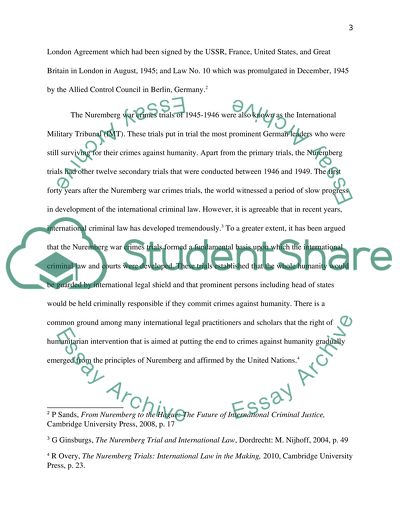Cite this document
(“The mistakes ICTY and the ICC of the Nuremberg war crimes trials Essay”, n.d.)
The mistakes ICTY and the ICC of the Nuremberg war crimes trials Essay. Retrieved from https://studentshare.org/law/1400135-to-what-extent-have-the-practices-of-the-icty-and
The mistakes ICTY and the ICC of the Nuremberg war crimes trials Essay. Retrieved from https://studentshare.org/law/1400135-to-what-extent-have-the-practices-of-the-icty-and
(The Mistakes ICTY and the ICC of the Nuremberg War Crimes Trials Essay)
The Mistakes ICTY and the ICC of the Nuremberg War Crimes Trials Essay. https://studentshare.org/law/1400135-to-what-extent-have-the-practices-of-the-icty-and.
The Mistakes ICTY and the ICC of the Nuremberg War Crimes Trials Essay. https://studentshare.org/law/1400135-to-what-extent-have-the-practices-of-the-icty-and.
“The Mistakes ICTY and the ICC of the Nuremberg War Crimes Trials Essay”, n.d. https://studentshare.org/law/1400135-to-what-extent-have-the-practices-of-the-icty-and.


